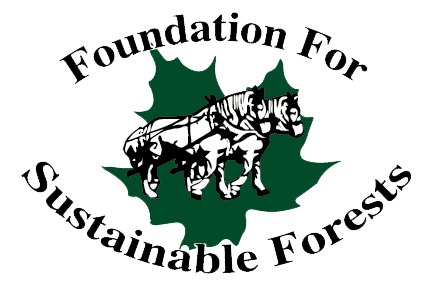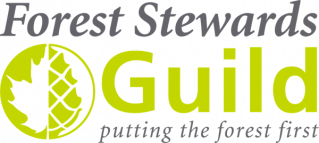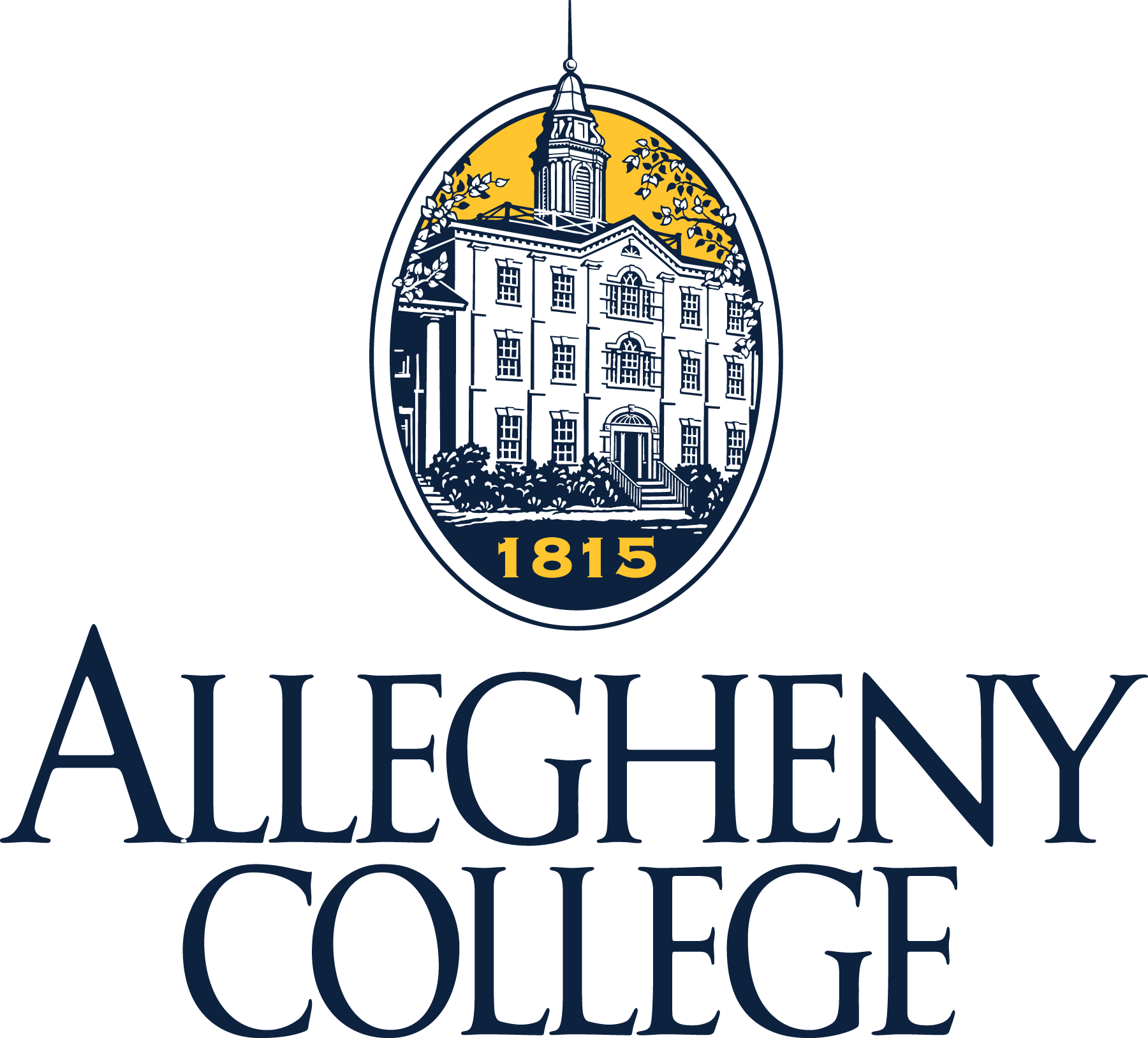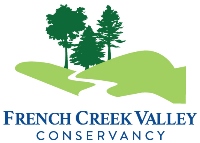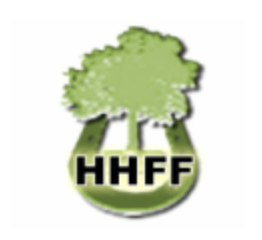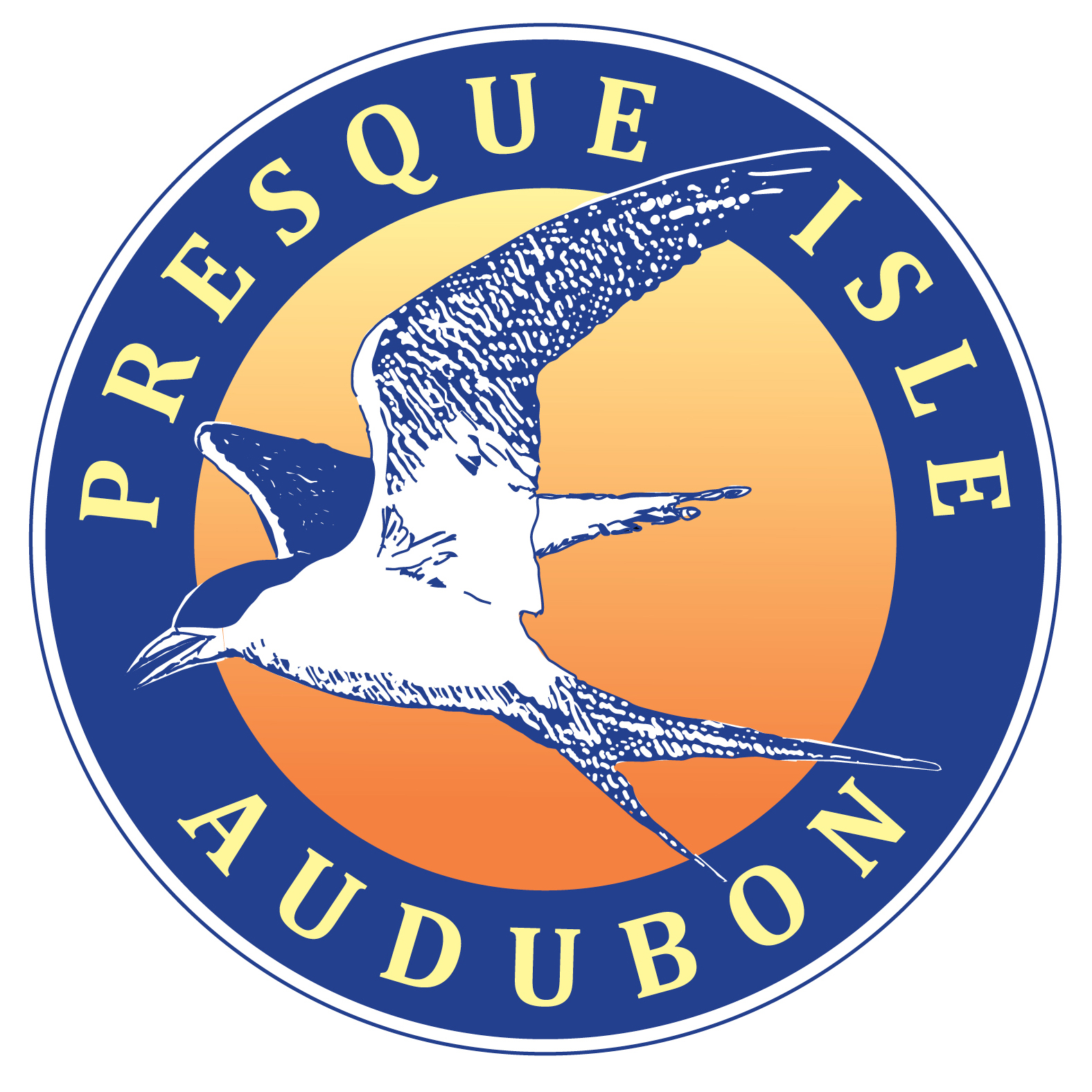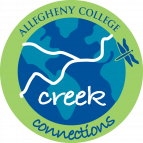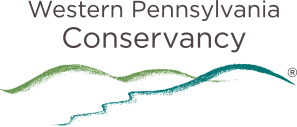A Land Trust
As a nonprofit land trust, the Foundation for Sustainable Forests protects and stewards over 3,700 acres of working woodlands through direct ownership or a conservation easement with a forest management component. These lands serve the community in perpetuity- supporting the rural economy through sustainable forestry and providing critical services such as clean air and water, and recreational opportunities for the public to enjoy. As part of our commitment to the community, our properties remain on the tax rolls and support rural jobs in the sustainable timber and land stewardship industry.

OUR MISSION is to protect forested ecosystems and support rural communities through working forests, to raise awareness of the importance of conserving intact forested ecosystems, and to highlight sustainable forestry practices for the benefit of the land.
Where We Started
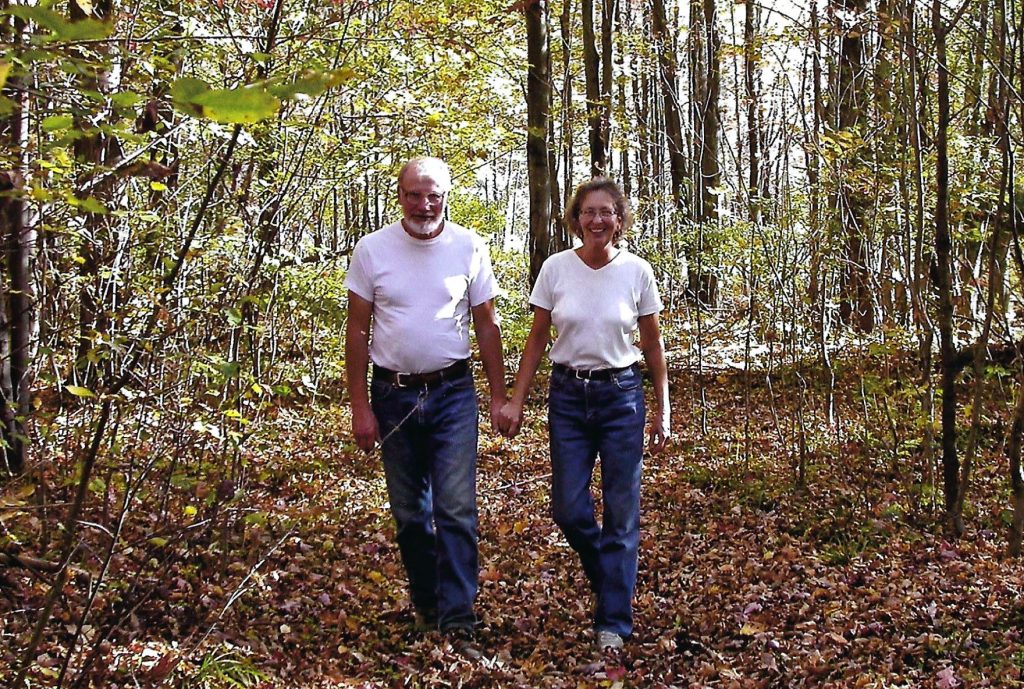
In 2004 Troy and Lynn Firth started the Firth Family Foundation to manage and protect their woodlands in perpetuity. In 2009, after realizing the need for a broader conservation entity active in forest management, we became the Foundation for Sustainable Forests and began work with landowners around the region.
For landowners concerned about the future of their forest we offer a way to continue a legacy of stewardship beyond their tenure. Through donations, grants and proceeds we continue an active program of land conservation and education.
In timber-dependent communities, such as those found in Northwest Pennsylvania, it is crucial that land protection efforts do not stifle the local economy. Rather than preserving land untouched, we are actively managing our timber resources to sustainably provide the forest products and ecosystem services that people depend on. By functioning within the local community we are better positioned to educate the public about sustainable, restorative forestry and broaden our impact across the landscape.
"A thing is right when it tends to preserve the integrity, stability and beauty of the biotic community. It is wrong when it tends otherwise."
-Aldo Leopold
A Focus on Conservation Forestry
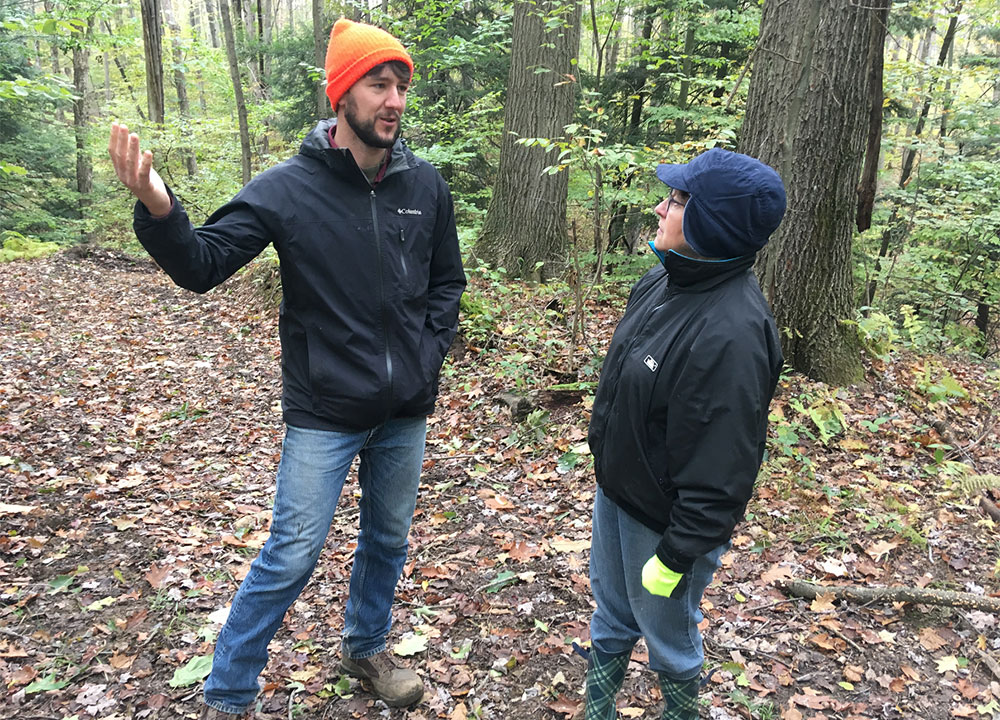
Our Forest Management Principles
- Be reactive in our assessment and proactive in our approach: Let conditions recommend the management rather than dictating conditions through management
- Maximize Options: To accommodate future variables, management should create diversity and opportunity.
- Emphasize art, informed by science: Our scientific understanding is limited to a single generation of trees. Therefore, personal experience and intuition must play a role.
Aldo Leopold once wrote, "To keep every cog and wheel is the first precaution of intelligent tinkering." Our goal as we put these principles into action through "intelligent tinkering" is to ensure that we are maintaining resilience, balance and diversity in our forests.
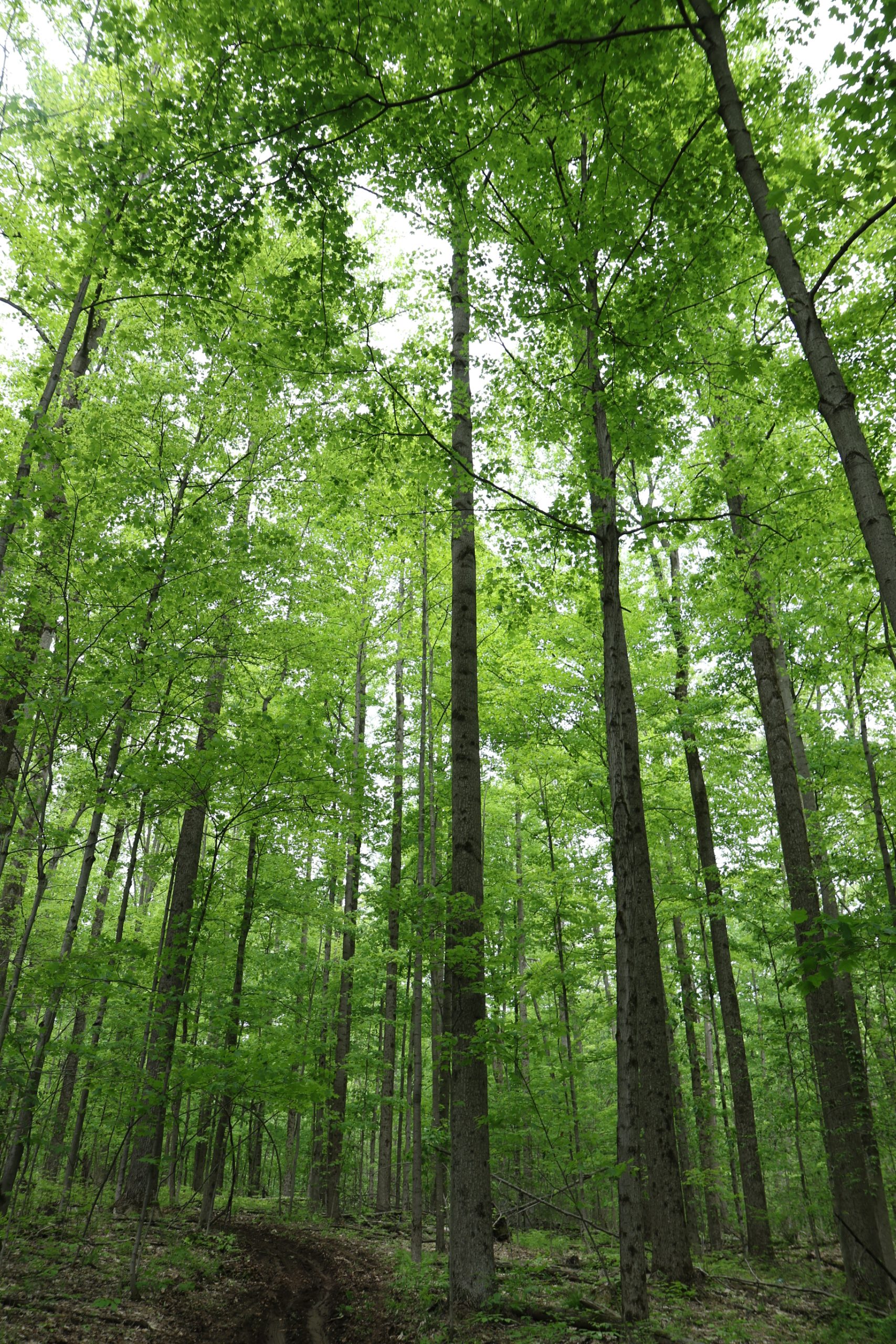
Selecting Trees for Harvest
Good forestry inherently involves long-term management. Trees often have a lifespan of several hundred years so growing a healthy forest cannot be accomplished with short-term economic priorities. When deciding which trees will be cut we must ignore the value of the tree and focus instead on its health and potential and the forest as a whole.
Using ''worst-first'' tree selection means that we harvest only the unhealthy, undesirable or worst trees. This leaves behind a forest stand of healthy, high quality trees that will yield the best long-term economic return and improve the overall health of the ecosystem. By avoiding large scale clearcuts and other intensive, industrial practices our forests become a mosaic of trees with different heights, species, and functions. In many cases our early management is a matter of restorative forestry.
Diverse forests are better able to provide habitat and to respond to future impacts.
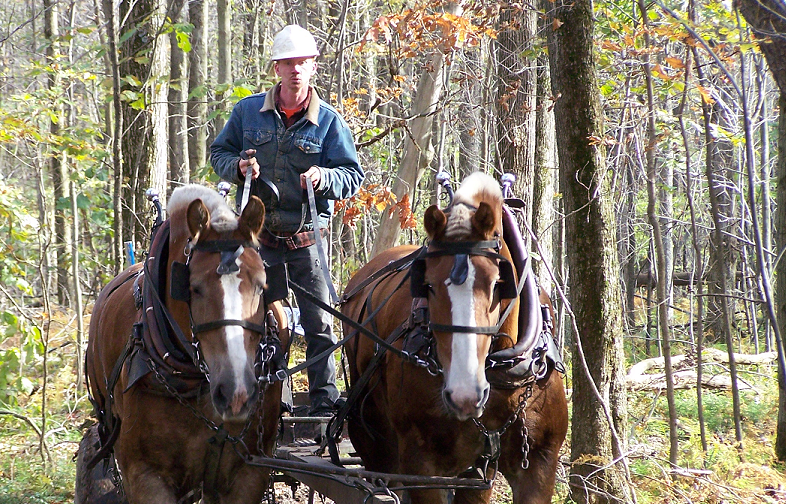
Horse Logging
Good forestry focuses more on the trees being left in the woods than those being removed. Because of this, it is important that we do no damage to the so-called "residual" trees during a harvest.
Rather than removing logs with a large machine we utilize teams of horses to skid from the stump to a roadway wherever feasible. Since horses are lighter and smaller than conventional machinery, we are able to navigate through the forest with less damage to trees along the skid trail and less rutting of the soil.
"As with many projects the Foundation for Sustainable Forests undertakes within their communities and region of influence, this project very much demonstrates their commitment to the place in which they live and work,"
- Allyson Muth, Director, James C. Finley Center for Private Forests
Our Conservation Partners and Friends
- FINLEY CENTER FOR PRIVATE FORESTS - The Finley Center focuses on applied research, education and outreach to students, landowners, the forest-products industry, loggers, conservation districts, land trusts, NGO's and the public.
- FOREST STEWARDS GUILD - An organization of forest stewards, natural resource professionals, & affiliates to restore and sustain the integrity of our forests and meet the needs of the communities that rely on them.
- ALLEGHENY COLLEGE - A partner in the long-term conservation of the Bail Family Forest, which serves as an educational site and demonstration forest. A long-time collaborator on sustainable forest-based projects.
- FRENCH CREEK VALLEY CONERVANCY - A private, non-profit land trust dedicated to maintaining and enhancing water quality, natural habitat, biological diversity & recreational opportunities of the French Creek Watershed in NW PA.
- COOK FOREST CONSERVANCY - The Cook Forest Conservancy is dedicated to protecting and improving the lands, waters, and wildlife of the Cook Forest State Park ecosystem, now and for future generations.
- HOMEGROWN NATIONAL PARK - Founded by scholar and author Doug Tallamy, Homegrown National Park's mission is to regenerate biodiversity because all humans need healthy, productive ecosystems to survive.
- THE HEALING HARVEST FOUNDATION - A 501(c)3 organization based in Virginia that supports community-based sustainable forestry initiatives, particularly animal-driven timber extraction and restorative forestry practices.
- PRESQUE ISLE AUDUBON SOCIETY - Its Mission is to conserve and restore natural ecosystems, focusing on birds, other wildlife, and their habitats for the benefit of humanity and the earth's biological diversity in NW PA
- CREEK CONNECTIONS - Creek Connections fosters hands-on environmental science education in schools throughout western Pennsylvania.
- WESTERN PENNSYLVANIA CONSERVANCY - Dedicated to protecting and restoring the region’s exceptional natural places since 1932, the WPC operates across Western PA to make a difference in our region’s water, land and life.
- NATIONAL AVIARY - The vision of the National Aviary is to be a leading resource for information and experiences that advance global conservation of birds and their habitats through education, entertainment, ecological research, husbandry, and healthcare. Under the direction of researcher Dr. Steven Latta, FSF is partnering with the Aviary to conduct research on forest songbirds in its uneven-aged forests.
- WATERSHED CONSERVATION RESEARCH CENTER - The Watershed Conservation Research Center engages in strategic conservation activities and trains future watershed stewards to protect, restore, and enhance our land and water resources for future generations in the upper Allegheny River basin, focusing on the French Creek Watershed.
